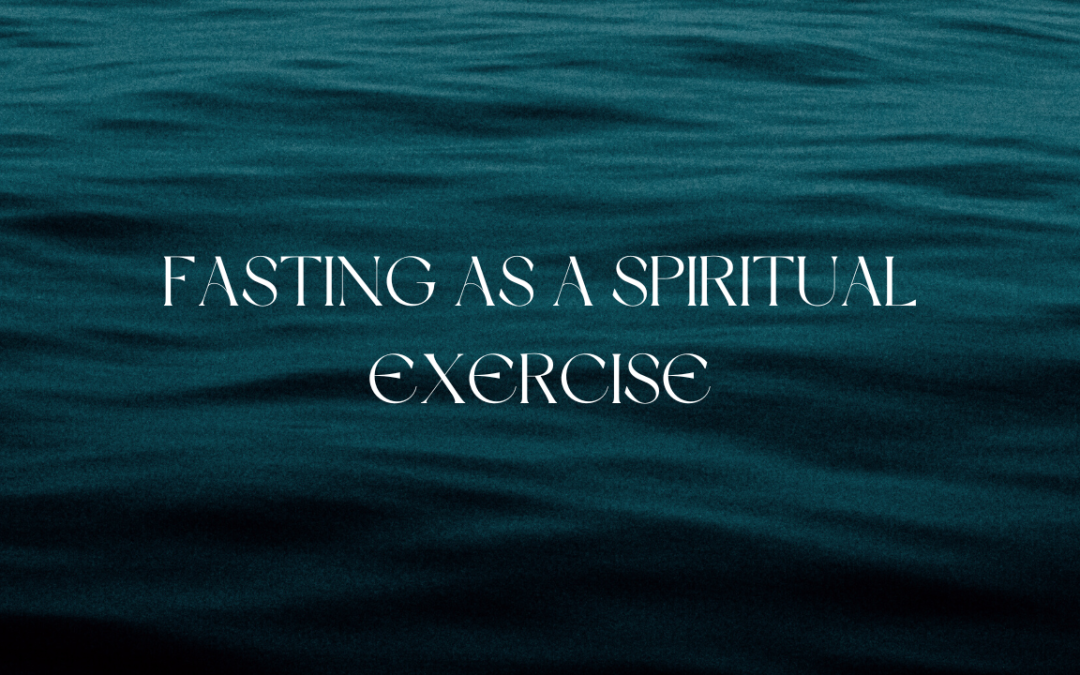In this week’s blog post, we are going to dive into the truths of fasting in the Christian faith. This is a subject that has raised quite a number of questions and it is our prayer for you that at the end of this blog post, your perspective on this exercise is transformed and you are strengthened to live a life where you practise the type of fasting that pleases God.
The word “fasting” stems from the Old English verb “fæstan,” which means “to hold firm, adhere, or bind”. Contrary to popular belief, fasting in the Christian faith is primarily a spiritual exercise, not a dietary restriction. It involves abstaining from things that bring us pleasure, including food. The first place we see fasting mentioned in the Bible is in Exodus 34:28 when Moses fasted for 40 days before receiving the Ten Commandments. We also see fasting mentioned in the book of Samuel when David’s first child was sick and he fasted and prayed in hopes that God would spare the life of the baby. In Esther 4, Esther also fasted with Mordecai and her people before she went to the king to plead with him for the lives of her people. In Matthew 4, Jesus fasted for 40 days in the wilderness before beginning his ministry. These are just a few instances of fasting in the bible.
Why do we fast?
There are several reasons why we fast as Christians and some of these reasons include; for God’s guidance, fellowship with the holy spirit, for deliverance, to grow in intimacy with God, and to enhance our prayer lives. Ultimately, fasting is not just about bringing a request to God but it is one of the many ways we feed our spirit man to grow in spiritual maturity through the power of the Holy Spirit. It is an access point through which we gain spiritual growth and an exercise that cleans out our spiritual ears to hear God clearly.
In the story of Esther in Chapter 4, her people were on the verge of being killed and her uncle Mordecai had come to her to do something about this by speaking to King. In response, Esther along with the other Jewish people fasted for 3 days by not eating or drinking anything. After doing this, Esther went to the king to make her request and her request was granted. Some people have argued that Esther only fasted because she knew that she needed some form of divine intervention to find favour before the King. While that might be true, we pose the probability that Esther fasted to hear the voice of God. In order to approach the King, she knew that she had to spend time with God first before she did anything else. It is an admirable lesson that we learn from David in the book of Samuel. During his time as King, David consulted with God before making most of his decisions and he relied on God’s guidance in all his endeavours. The same can be said about Esther.
We must refuse to engage in fasting simply because we need something from God. If you are a part of what this generation calls the ‘fitness family’, you would know that you cannot just decide to start going to the gym because you want a ‘flat stomach’. That’s not how the gym works. Instead, the gym requires you to consider your overall health and choose to work towards being fit generally. By so doing, developing a ‘flat stomach’ becomes only one of the many benefits of your consistent exercise routine. This is the same with fasting as a spiritual exercise. It needs to be a consistent part of your walk with God. In seeking God first, everything else you need will be added.
What should we fast from?
This is a question that has brought about intense discussions and arguments. Some say that everyone in the bible fasted from food and as such, we ought to only fast from food. Others say that we can fast from any other thing in our lives that we depend on daily such as our phones, social media, Netflix etc. The truth is that neither of these arguments is wrong. Yes, it is true that virtually everyone who fasted in the bible primarily fasted from food. However, we currently live in a time where there are a vast number of distractions and things that attempt to exalt themselves above the presence of God in our lives. Our time of fasting is essentially meant to be a time between us and God alone. This means no distractions. Back in the biblical days, it made sense that they only fasted from food. If you pay close attention to those who fasted in the bible, you would realise that they also secluded themselves from distractions and other people. In the same vein, you could decide to see fasting from social media as your way of going into the wilderness and shutting out the noise while you spend time with God.
Our proposed definition of fasting is that:
‘Fasting is a spiritual exercise through which a believer grows in intimacy with God by voluntarily abstaining from the worldly things that bring them pleasure’.
If you carefully read through our definition, you will notice that the essentials of fasting are you and God. It is less about what you are abstaining from and more about what you are doing during the fast. You can decide to abstain from food for 40 days but all you do in those 40 days is binge-watch your favorite Netflix series. That’s not a spiritual exercise, it’s just an attempt at weight loss. The essence of fasting is in the things you do during the fast such as engaging in prayer, meditating on the word of God, being a source of help to those in need and sharing the good news of the gospel to anyone you come across. Your focus should be on God and not on what you are abstaining from.
In Isaiah 58, the people of Israel had been fasting and engaging in all kinds of religious routines but God did not give them the attention or answers they sought. So they began to ask why and in response, God expressed his displeasure with the ways they fasted. As the Good Father that he is, this rebuke also came with correction and he taught the Israelites the right way to fast. In Isaiah 58:7, God said: “This is the kind of fast day I desire: Share your food with the hungry, provide food for the homeless and bring them into your home. Clothe the naked, and do not turn your back on your own flesh and blood”. God told the Israelites that this is the way to fast if they want their prayers to be heard in heaven.
In verse 13, the Prophet Isaiah encourages us to honour God on our days of fasting by not saying or doing things that we do every other day of the week. It is through this knowledge that we pray for you that as you continue to exercise spiritually through fasting, it shall be in honour of God and your relationship with Him alone.
Till next time,
Remember that the essence of every exercise is to grow


